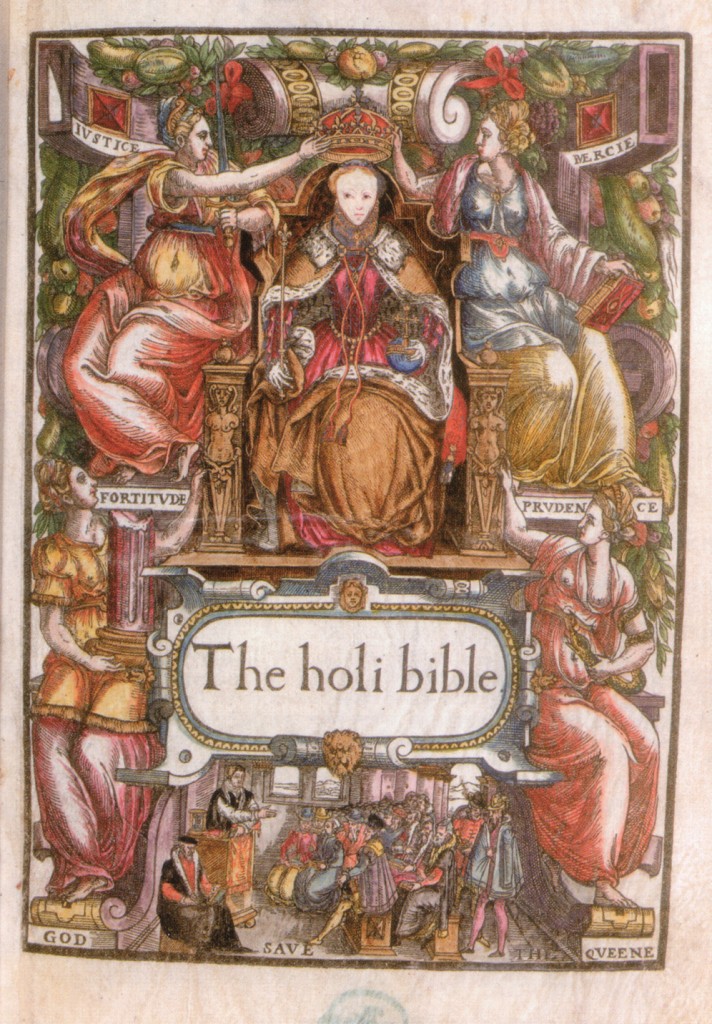I first read the Bible cover to cover when I was 13 years old. To this day I am not certain what prompted me to do it. I was into Shakespeare at the time and the version of the Bible I choose to read was the King James Version– so maybe it was the language that attracted me.
I do remember deciding to read the entire thing, because I remember the moment I hit the first of the ‘begats’ and feeling my eyes roll back in my head. It was the first time I had to, force is the wrong word, choose to read. I don’t remember learning to read and I have never not read what was in front of me, from books, to magazines, to cereal boxes to lists of ingredients on lotion bottles. So for me to hit a wall while reading was a new experience. As was choosing to read on.
As I grew up, I encountered the Bible in different ways. In my Junior High Sunday school we spent an entire year on the gospel of John (which oddly was featured as the verse of the day at Biblegateway when I went to look up which gospel it had been). The opening verse has stayed with me all these years as a result. “In the beginning was the Word, and the Word was with God, and the Word was God. He was in the beginning with God. And the Word became flesh and lived among us, and we have seen his glory, the glory as of a father’s only son, full of grace and truth.” (John 1:1-2, NRSV)
During the summers I would attend Vacation Bible School where we played endless rounds of a game where the leader gave you the book, chapter and verse and whoever found it first in their bible won. I got really good at it and it was a useful skill later in life.
In High School I took a “Bible as Literature” class and while I didn’t learn a lot of new things in that class, it did give me a foundation in writing about the Bible and exploring my own thoughts about what it was saying in a secular classroom. I wrote my final paper on books of the Apocrypha and had a great time actively looking for stories that featured women.
A few years ago I helped my mom edit her book, “Streams of Mercy: a meditative commentary on the Bible” and I spent many days checking each of her quotations against the Bible to ensure that we had transcribed them correctly. That meant that I put my Bible racing skills to the test as I flipped back and forth from New Testament to Old and dove deeply into the Psalms.
All this has given me my own take on the Bible. I don’t take it as the literal word of God and I try very hard to balance my modern take on the stories with information we learn from archaeologists, historians, and cultural anthropologists about what the context might have been for the people who lived during the times certain parts of the books of the Bible were written.
Reading the Bible in it’s entirety gave me an understanding that there is more to it than just the verses that get read in church on Sundays. Three of my favorite stories get very little air time during the church year. They are the story of the Judge Deborah who said: “I will surely go with you; nevertheless, the road on which you are going will not lead to your glory, for the Lord will sell Sisera into the hand of a woman.” (Judges 4:9), the story of Esther who risked everything to save her people, the story of Judith (and her unnamed maid) who not only cut off Holofernes head, but had to stand up to her own people to do it.
In addition to finding stories that spoke to me, reading the Bible cover-to-cover (including the begats) gave me an appreciation for how much of the story we fill in from our own experiences. In some cases, the stories are mere sketches, just a broad outline of events, in others they are oddly detailed and include references to customs and things that I have no personal experience with.
In the church, the Bible not only gets read, the stories with in it get re-told and re-interpreted, to the point where we sometimes need to strip away hundreds of years of our own story-telling to see the old stories in a new light.
I encourage everyone, regardless of their faith, to read the Bible through for themselves at least once. There is so much of our received culture that, much like Shakespeare, is influenced by it to this day.
As we say in our family, the more you read, the more jokes you will get.
Reading the Bible gives access to a cultural touchstone and exposes the reader to stories that have been told for centuries. And reading the Bible oneself rather than hearing stories about what the Bible says can be it’s own form of revelation.
Kristin Fontaine is an itinerant Episcopalian, crafter, hobbyist, and unstoppable organizer of everything. She spends a lot of time thinking about the meaning of life and her relationship to God and it all spills out in the essays she writes. She recently embarked on a new adventure with her husband, supporting him as he launches Dailey Data Group, a statistical consulting company.

